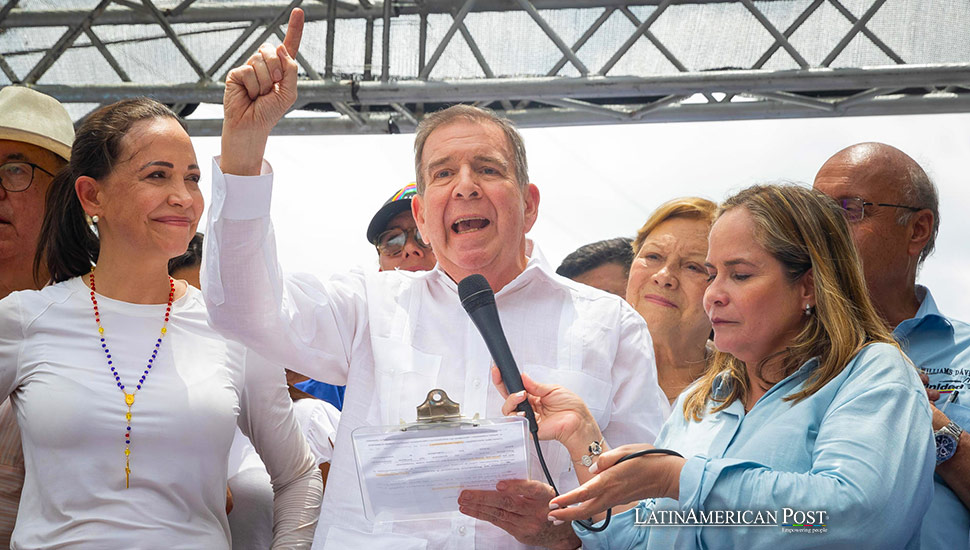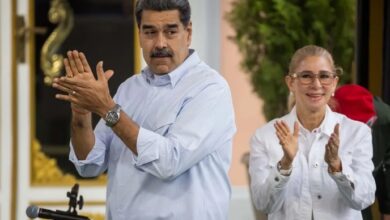Edmundo González: Venezuela’s Hope for Democratic Revival

As Venezuela approaches its presidential election, opposition candidate Edmundo González promises a return to democracy and freedom for political parties. Despite challenges and a fraught political climate, he calls on the military to uphold the Constitution and protect the nation’s institutions.
As Venezuela gears up for its presidential election on July 28, its political landscape is charged with anticipation and uncertainty. Edmundo González, the opposition candidate nominated by the Unitary Platform, has emerged as a beacon of hope for those yearning for a democratic revival in a nation beleaguered by economic collapse and political repression. His candidacy follows a turbulent period marked by the disqualification of famous opposition figures, most notably Maria Corina Machado, whose ban from running has galvanized supporters to rally behind González.
González, a former diplomat with postings in Argentina and Algeria, was thrust into the political spotlight when the opposition coalition needed a viable candidate after Machado and her replacement were barred from the election by the Supreme Court. The ruling party’s tactics to eliminate strong opposition candidates have been a recurring theme in Venezuela’s recent electoral history, reflecting the government’s desperation to maintain power amidst widespread discontent.
Initially a placeholder candidate, González’s nomination became permanent just a day before the registration deadline. This sudden elevation from political obscurity to a presidential contender has put him under intense scrutiny. González’s political career has been mainly behind the scenes, marked by a commitment to diplomacy and democratic principles. His supporters describe him as a “consensus seeker” and a man of “firm democratic convictions” who avoids bombastic rhetoric, which starkly contrasts the fiery, populist style of his predecessor, Machado.
Political Landscape and Challenges
Venezuela’s political landscape has been deeply polarized, with Nicolás Maduro’s government presiding over a country in economic freefall. Under Maduro’s leadership, Venezuela has experienced severe inflation, a collapsed healthcare system, and widespread poverty, driving millions to flee the country. The United Nations reports that over 7.7 million Venezuelans have left their homeland, seeking refuge primarily in neighboring Latin American countries.
The opposition’s struggle to present a unified front has been a significant obstacle. The Democratic Unity Roundtable (MUD) and later the Unitary Platform have faced internal divisions and external pressures, making it difficult to mount a cohesive challenge to the ruling party. Despite these challenges, González’s candidacy represents a last-minute but earnest attempt to unify the opposition and offer a credible alternative to Maduro’s regime.
Venezuela’s journey from one of the wealthiest countries in Latin America to its current state of crisis is a tale of political mismanagement and corruption. The nation’s oil wealth once funded expansive social programs under Hugo Chávez, Maduro’s predecessor and mentor, who implemented socialist policies that initially garnered significant support. However, the reliance on oil revenues and the nationalization of key industries led to economic vulnerabilities. When oil prices plummeted, the government’s inability to adapt resulted in a catastrophic financial collapse.
Allegations of human rights abuses, election rigging, and suppression of dissent have marked Maduro’s tenure. The international community, including the United States and the European Union, has imposed sanctions on Venezuela, citing the government’s failure to uphold democratic norms and human rights. These sanctions, while aimed at pressuring the government, have also exacerbated the suffering of ordinary Venezuelans, who face shortages of food, medicine, and necessities.
The Campaign Trail
Edmundo González’s campaign is characterized by a stark message of reconciliation and institutional respect. Speaking to a crowd in La Victoria, his hometown in Aragua state, González emphasized the need for the military to protect the Constitution and for political movements to exercise their rights freely. “Imagine a country where the president does not insult or see his adversaries as enemies,” he urged, highlighting a vision of a more inclusive and respectful political culture.
González’s approach contrasts sharply with Maduro’s combative style. His campaign has been supported by Maria Corina Machado, who continues to play a pivotal role in mobilizing the opposition despite being barred from running. Machado has described González as a “good and honest” man, urging her supporters to back him as the candidate who can bring about the necessary change.
The Venezuelan electorate is deeply divided. Polls indicate that González has significant support, but skepticism remains, especially among those disillusioned with the political process. A survey by local consulting firm More Consulting found that 50% of voters support González, while 32% favor Maduro. However, the margin of error and the volatile nature of Venezuelan politics mean these numbers could shift as the election date approaches.
The struggle for basic survival overshadows political allegiances in regions like Sabana de Mendoza. Many Venezuelans, like Hermógenes Alvarado, express a willingness to support González simply as an alternative to Maduro, hoping for any change to improve their dire circumstances. Yet others, like Moises Mendoza, remain unconvinced and may choose to abstain from voting, reflecting the deep-rooted cynicism about the political process.
The Path Forward
The upcoming election represents a critical juncture for Venezuela. Suppose González can harness the support of a broad coalition and win the presidency. In that case, he faces the monumental task of governing a country deeply fractured by years of mismanagement and ideological conflict. His calls for international support and adherence to democratic principles will be crucial in navigating the complex political landscape.
The international community’s role will also be pivotal. The United States and other countries have made the holding of free and fair elections a condition for lifting sanctions. If the election is perceived as legitimate, it could open the door to much-needed economic relief and international assistance.
Also read: U.S. Reinstates Venezuela Sanctions Amid Unmet Election Promises
Edmundo González’s candidacy embodies the hopes of many Venezuelans for a return to democracy and stability. His diplomatic background and commitment to democratic values starkly contrast to the current regime. The world watches closely as Venezuela approaches the election, hoping for a peaceful and democratic transition. For the Venezuelan people, the stakes have never been higher, and the promise of change, however uncertain, provides a glimmer of hope in a country longing for a brighter future.





